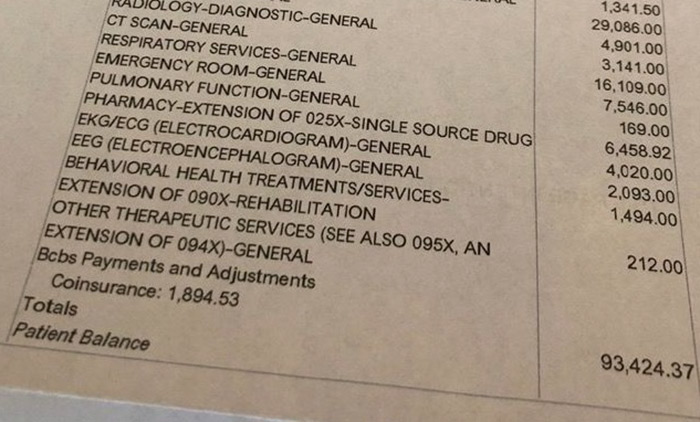Why Is Going To The Hospital So Ridiculously Expensive?
I’m a professional managed care contract negotiator for a major health system in the US who also teaches health administration classes at a local university. Let me try to be comprehensive:
There’s a difference between what’s price and cost. Hospital prices are what hospitals charge for a service. Like any other business, charges include the direct costs (supplies, clinician time, etc.) and indirect costs (power bill, departmental overhead, etc.). Included in the indirect cost is always an amount to cover uncompensated care. This is cost incurred by people who can’t or don’t pay their bills, and it’s re-allocated into future pricing, creating inflated charges, which are reported as the “price” for healthcare services in the media and quoted by politicians. edit In addition, government programs with set payment systems (i.e Medicare, Medicaid) often cover some, but not all of the direct cost of care. This too is passed on in the pricing.
American law states that anyone who shows up to a hospital emergency room with an actual emergency must be treated without regard for ability to pay (EMTALA). This means that someone with no insurance can still receive life-saving care through the ER and not pay a dime. Unfortunately, 30 years of this law in practice, coupled with no requirement to have health insurance for most of that time means that we’ve developed a cycle of inflated ER charges grossly above the actual cost of doing business.
No one pays 100% of billed charges. Yes, managed care organizations (MCOs) do negotiate down, but so do many self-pay patients individually. At some of my hospitals, a self-pay patient can get a better discount than a member with a health plan, because hospitals know a) charges are inflated, and b) some money is better than no money. (also, and off topic, but you can negotiate directly with many providers for self pay for discounts of 50-75% off the price of the bill, depending on the hospital and the situation).
Most hospitals are not-for-profit. This is key to remember, because (anecdotal testimony to the contrary notwithstanding) hospitals don’t just jack up prices. It’s not a question of “because they can” or “because MCOs will pay”. I promise you, MCOs fight very hard to get the best possible discount so they can sell their insurance plans to as many people as possible, and unless a hospital is all alone in a market, high prices will drive customers elsewhere (unless it’s through the ER).
PPACA has changed a lot of this going forward, but we have a lot of business practice in place today that will not change quickly. One of the key things to look for over time (5-10 years) will be if the rate of increased prices slows down. Prices will continue to rise because of inflation, but whether they rise at more shallow rates than prior to 2010 is one of the metrics that is used to gauge Obamacare’s success.
